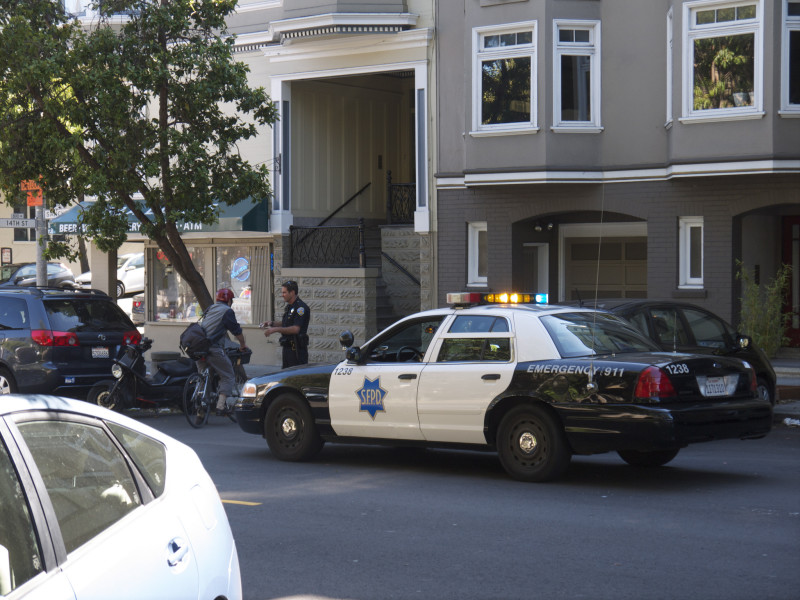Bike advocates say the San Francisco Police Department should be focused on dangerous drivers, who cause most serious injuries and fatalities on the city's streets.
The legislation was sparked by an ongoing crackdown of bicyclists who roll through stop signs along The Wiggle, the popular, non-hilly route between Market Street and Golden Gate Park. At one point, hundreds of bike riders held a protest along the route to prove that having every cyclist stop at every stop sign slows traffic and causes more congestion.
Supervisor Scott Wiener, a co-sponsor, said it was unrealistic to expect that bicyclists were going to stop at every stop sign, especially on streets where there is little traffic and "so little risk of anything happening."
"Cyclists are not going to stop at every single intersection, and that is the reality of the world, not just in San Francisco, but in every city that I have ever seen. It is a fantasy for us to think they are going to do so," he said.
Wiener and Avalos cited the example of a cyclist, Katrina Sostek, who said she was recently given a ticket on The Wiggle for rolling through a stop sign while riding less than 5 mph. The fine for the violation: $200.
"The time and effort the police spent giving me a ticket would have been far better spent focusing on legitimately unsafe drivers and cyclists," Sostek wrote in a letter to the supervisors.
Avalos noted that Vision Zero, the city's program to end all traffic deaths by 2024, requires police captains to focus traffic enforcement on the top five most dangerous intersections in their districts. None of those intersections, he said, are along The Wiggle.
Supervisors David Campos, London Breed, Jane Kim and Eric Mar also co-sponsored the ordinance and voted yes. Supervisors Malia Cohen, Mark Farrell, Aaron Peskin, Katie Tang and Norman Yee voted against it.
“It sends a message to everybody in San Francisco that one mode of transportation in our city has a different set of rules than everybody else," said Farrell.
Disability advocates have been among the staunchest opponents. The Mayor's Disability Council opposed the legislation and said it would be "counterproductive" to Vision Zero. Some advocates worried it might endanger people with disabilities, a concern echoed at the meeting by Supervisor Cohen.
"If this ordinance passes, it will potentially put them in harm's way," Cohen said. "I have a real concern that this ordinance will confuse the issue and further create an even greater misunderstanding between cyclists, between drivers and also pedestrians."
Natalie Burdick with Walk San Francisco said the pedestrian advocacy organization has taken a neutral position because there are no data about how the bike yield law would impact pedestrian safety.
But Walk SF did succeed in tacking on some amendments, including evaluating the effect on pedestrians and requiring that bicyclists slow to no more than 6 mph when approaching a stop sign.
The legislation would also require the Police Department to issue quarterly reports on traffic stops that would list the citation and mode of transportation for each offense and include a breakdown of stops by race or ethnicity, age and sex.
Mayor Lee sent a letter to the board in September saying he would veto the legislation: "The so-called 'Idaho Stop', while expedient for some bicyclists, directly endangers pedestrians and other cyclists, and I cannot allow it to become law. Trading away safety for convenience is not a policy I can allow this city to endorse."
One idea that has emerged as a potential compromise is a pilot program along The Wiggle.
